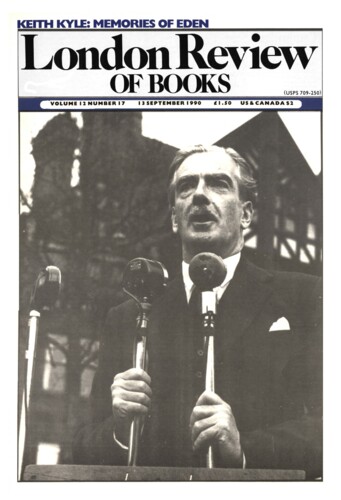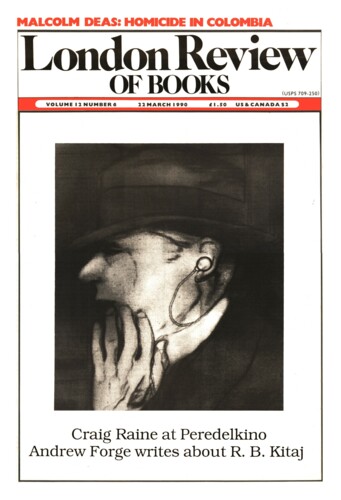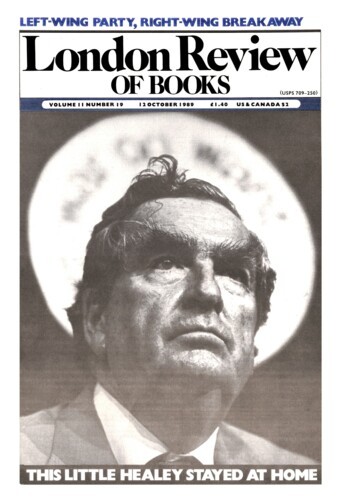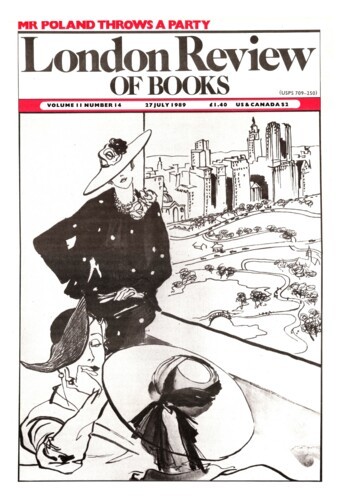The Second World War is rapidly approaching its formal end, amid scenes of a re-uniting and putatively dominant Germany and of a disintegrating Soviet Union. The British and French, while acknowledging with a gulp that this is, to everyone’s astonishment, a total victory for the West, can be heard nervously reflecting about how they are going to live with it. ‘In Paris,’ writes Professor Joseph Rovan in the Frankfurter All-gemeine Zeitung of 8 February, ‘people are alarmed at the idea of the enormous economic and political influence of a united Germany in Eastern Europe and the even greater clout of a united Germany in the European Community.’ It remained for the Gaullist ex-premier Michel Debré to predict gloomily in Le Monde that the age of Yalta (of which he also disapproved) would be followed by a repeat of Rapallo. Being well-practised in the protocol of Germanophilia, the French Government has had a better record in making the correct noises than the British, or rather than No 10, whose principal inhabitant has had a great time ‘speaking out’, regardless of time or place. The Germans, meanwhile, are rather too visibly marking their book according to how their allies perform, bearing in mind that what is happening is the ‘impossible solution’ to which they have been fervently committed since 1954.
The Second World War is rapidly approaching its formal end, amid scenes of a re-uniting and putatively dominant Germany and of a disintegrating Soviet Union. The British and French, while...





